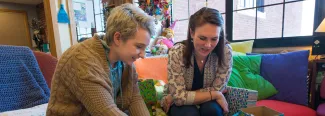 Greetings from the Interim Director
Greetings from the Interim Director
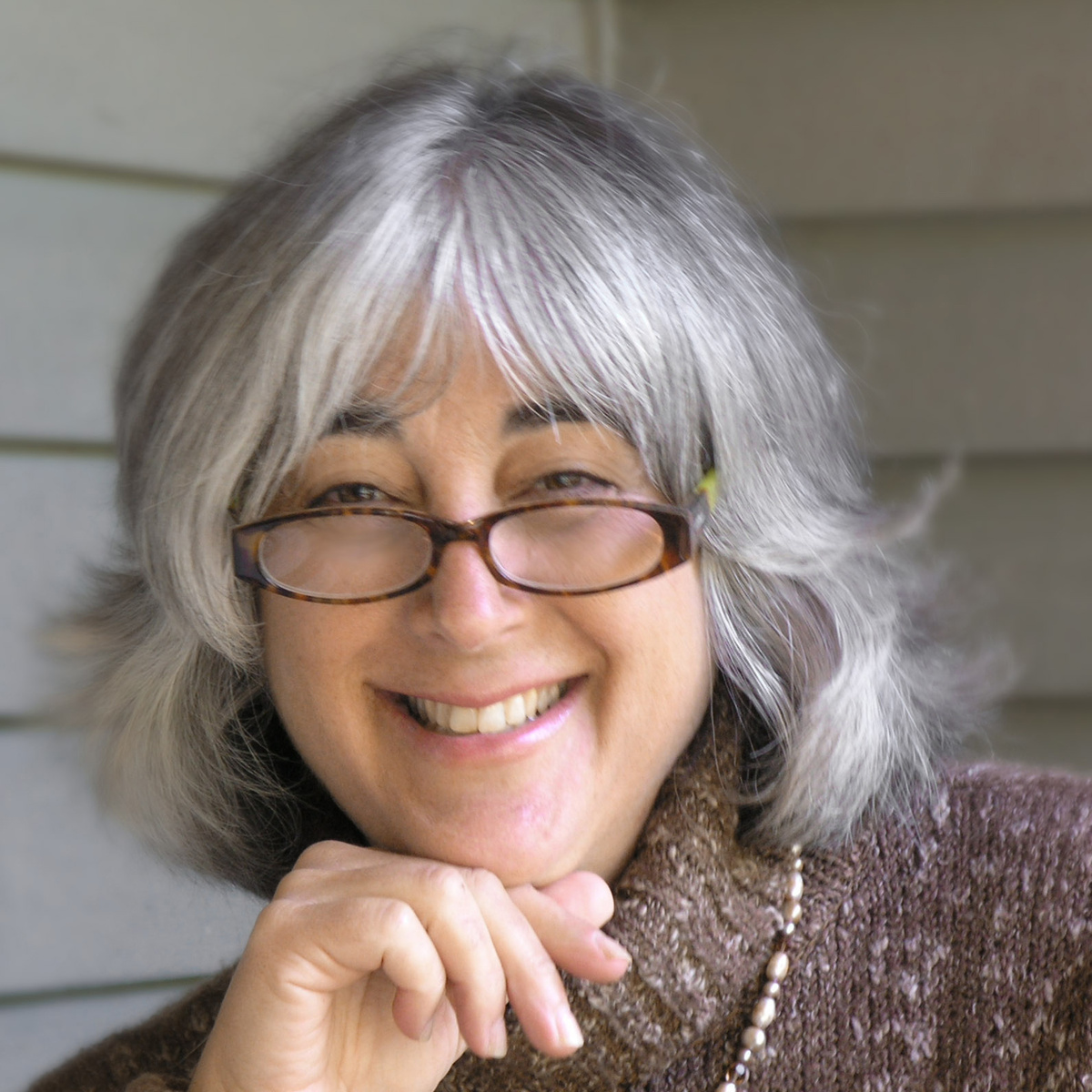
thoughts for the new year
Many of you may be familiar with the NPR series This I Believe (TIB). Based on the 1950’s radio series hosted by Edward R. Murrow, the now global entity invites people from all over the world to share stories representative of their every day, guiding values. The impetus to visit the TIB website was inspired by Trisha Mason, Coordinator of Service Learning and Jen Gunderman, from the School of Community and Population Health (you may have taken her Capstone course) who developed a course for UNE freshman based on the series.
Perusing the site, I was surprised that its approximate 125,000 essays include scores of perspectives; some concordant with social work values and paradigms; others which were not. The richness of the site, I believe, is that it enlightens the reader to a diversity of views, ones we’re apt to encounter in our professional journeys and those typically shared with only the closest of compatriots. They’re written by the famous — the not famous — and the infamous (you can determine which are which). They cover the gamut from sentimentality to profundity (again you decide). Below are some excerpts I’ve selected to consider as we move into the New Year:
“I believe in the power of determination and the necessity of compassion.” Kevin Myers (2013)
“I want to be remembered as a person who stood up to injustice, who wanted a better world for young people, and most of all, I want to be remembered as a person who wanted to be free. I still believe there can be a day when we will have true freedom, a day when we can all get along regardless of our race. This is not a dream. It is alive within the ability of us all.” Rosa Parks (2005)
“I believe that our greatest power is unleashed when people come together across social boundaries to form a community united by a common vision. It is through 'the power of we'… that we come to know the deepest truth of our humanity.” Sister Mary Scullion (2015)
“So long as conscionable and caring people are around, so long as they are not muted or exiled, so long as they remain alert in thought and action, there is a chance for contagions of the right stuff…” Norman Corwin (2005)
These selections mirror my biases — my beliefs, if you will — in the power of caring, compassion and collectivity; in the power of stories and telling; and in hope that at least within our own communities we can act together towards the common good.
As we move past the holidays and into 2016, instead of brief resolutions, think about what you truly believe. Harness it and grow it into the change you hope to see.
-Shelley
In this Issue
News and Happenings
final year students present their capstone/art projects
Congratulations to Kathryn Ridgeway, Sherene Shalashoor, Blanca Santiago and Abigail Chance on their presentations of their Capstone/Art Projects! Kathryn and Sherene presentation was on "Utilizing Videogames for Domestic Abuse Thrivers," Blanca Santiago presented on "All That is Familiar: Unaccompanied Refugee Youth in Portland, Maine," and Abigail's presentation was "Trauma for Creative Arts Nonprofits." All of these students are graduating this month with their MSW. Again, congrats to all!
.jpg)
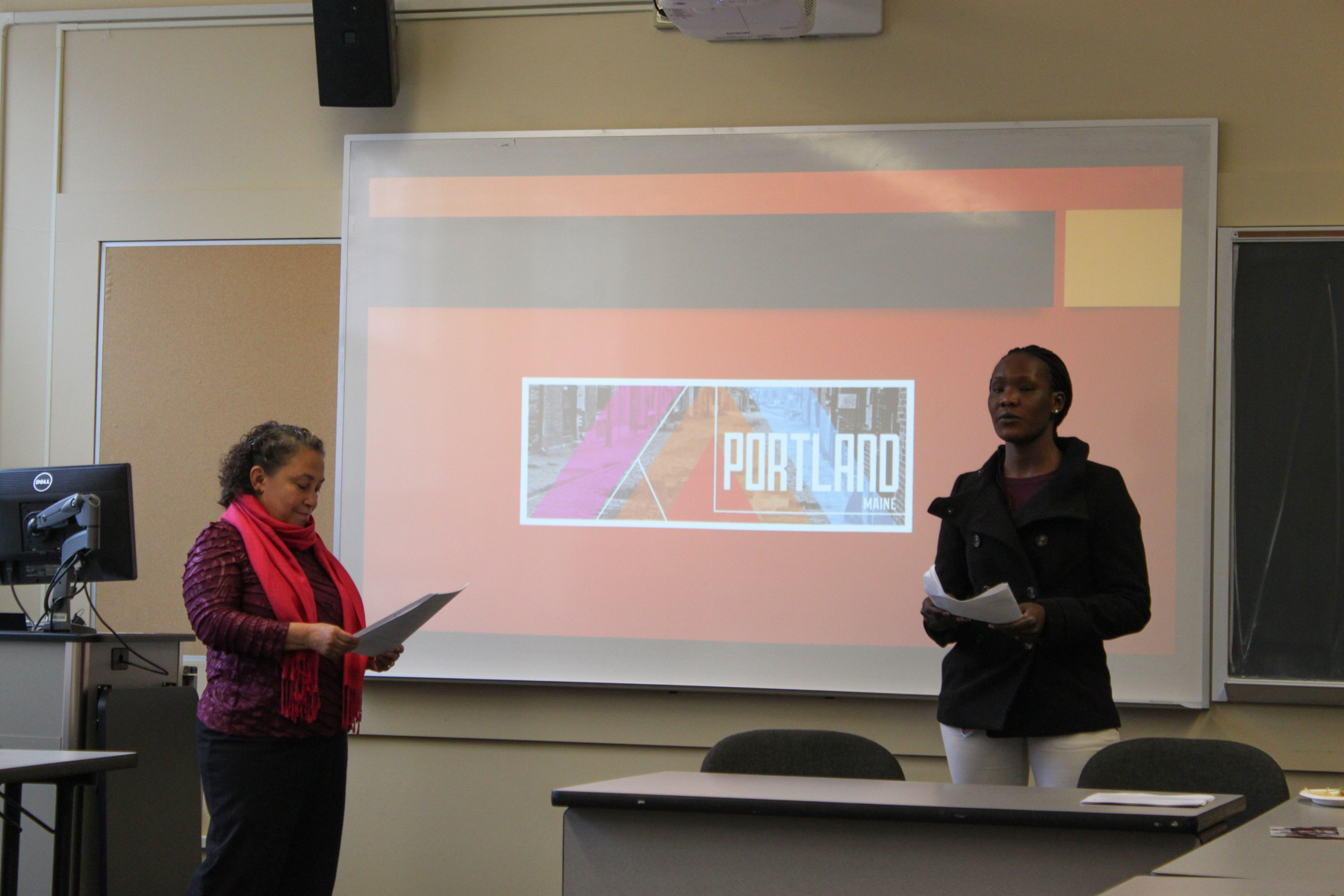
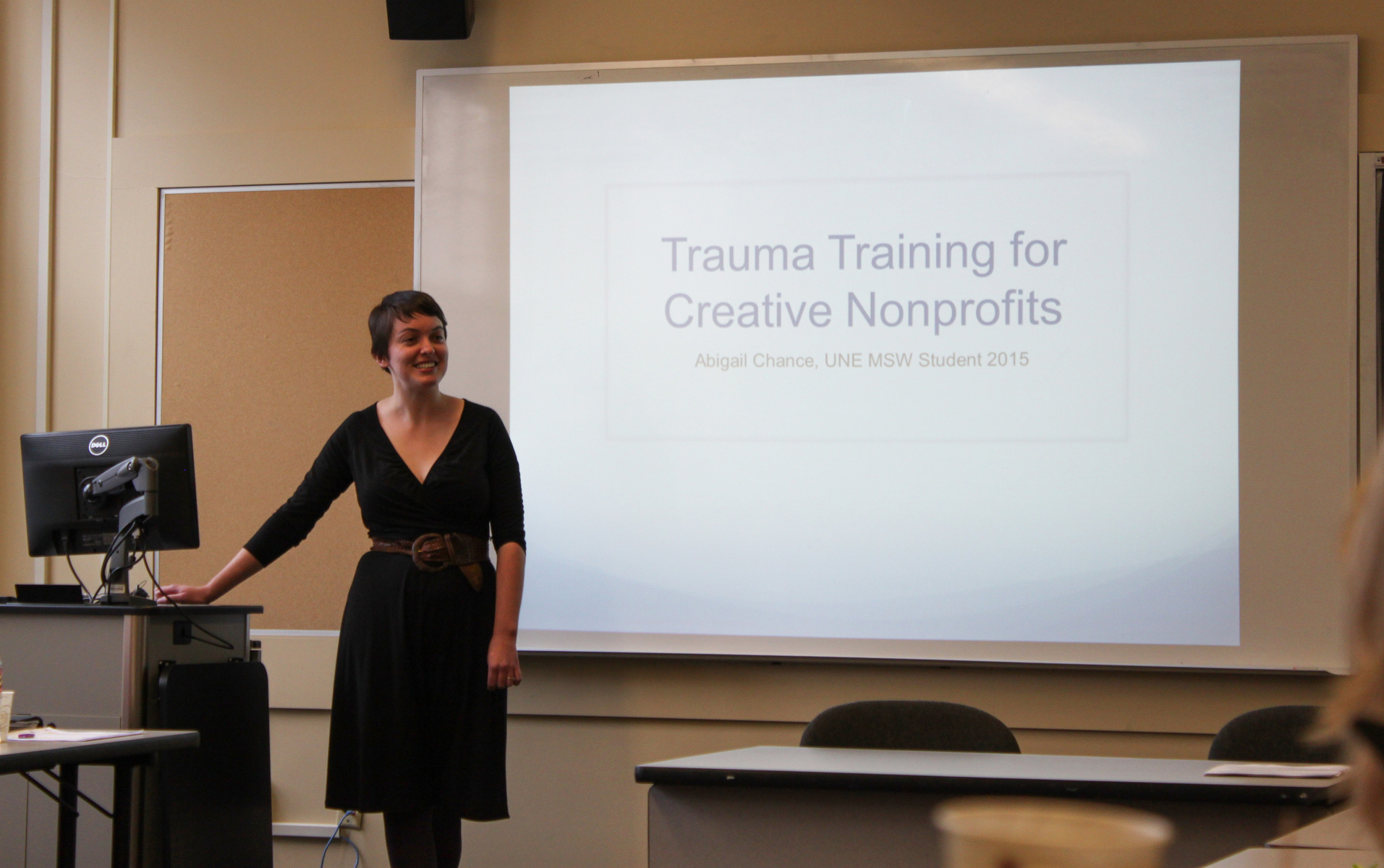
the telling room honored at the white house
Congratulations to The Telling Room for being presented with the National Arts and Humanities Youth Program Award by President Obama. The award recognizes the program’s effectiveness in developing learning and life skills in young people by engaging them in the arts or humanities. It is considered a national model for assimilating migrant youths and the White House award is the country’s highest honor for such programs. In addition to the White House recognition, The Telling Room will receive $10,000 to support the program. The Telling Room is a writing center in Portland, ME that focuses on helping children and young adults develop their storytelling skills. For more information please check out this article!
Student Spotlight
abigail chance, msw candidate '15
Abigail's Foundation Field Placement took place at the McAuley Residence, and her Advanced Placement is at the Island Institute for Trauma Recovery. She has also been working part-time at the Telling Room. She is finishing up her final placement and coursewor and is graduating from the UNE MSW program this month. Congratulations, Abigail!
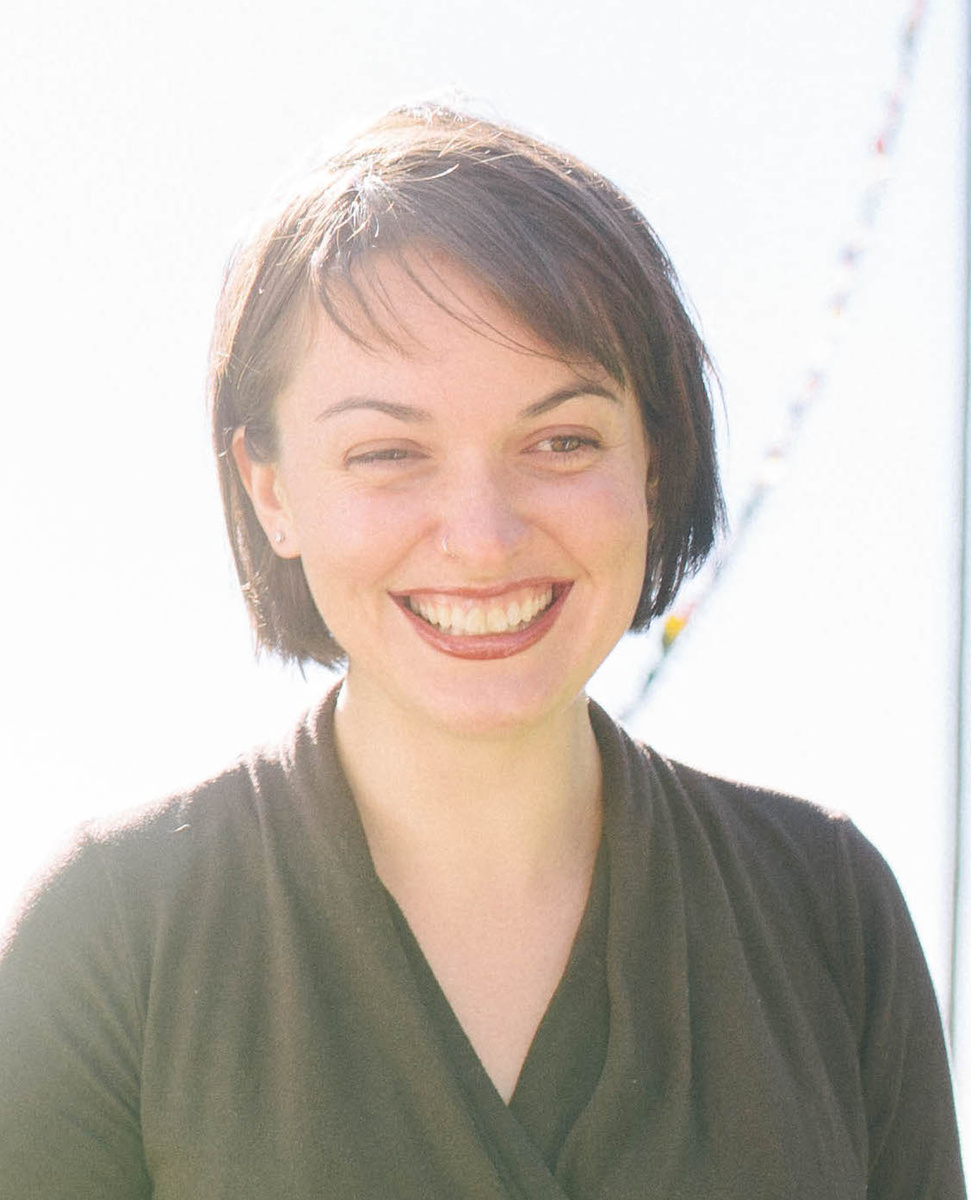 1. How would you describe your social work practice?
1. How would you describe your social work practice?
My social work practice is fluid, and will develop and change based on individual and community needs, interprofessional collaboration, sociopolitical contexts and my own personal and professional growth. After graduating this month, I plan to continue learning about and practicing creative, body-focused, trauma modalities and integrating them within social justice advocacy.
2. What is the most unexpected thing you have learned so far as a student at the UNE SSW?
I returned to school to pursue my MSW for a variety of reasons, including improving my ability to facilitate meaningful change with clients and communities. I was pleasantly surprised that my experiences at UNE and in my field placements provided me with the tools and space to shift internally and feel more connected between mind and body. This has helped me become more grounded and present with clients and others, and to incorporate self-care directly into my social work practice.
3. What has been the most rewarding and challenging parts of your field placements?
At my field placements at the McAuley Residence and the Island Institute for Trauma Recovery, the most rewarding and challenging parts have included sitting with others’ pain and difficult experiences. Kelli Fox, one of my Advanced Year professors, shared the metaphor of being a screen instead of a sponge, which describes how I have learned and continue to practice being open to emotional energy, while holding space for hope, healing and self-care.
It was also incredibly rewarding to be in two field placements that valued and prioritized learning, support and collaboration. I am so appreciative of the time, energy and wisdom of my two field instructors, Laura Philllips and Rudy Skowronski, and all of the other clinicians, professionals, community members and clients who engaged with me and gave me invaluable feedback.
4. What has your experience been like working at the Telling Room?
Every day I walk into work at the Telling Room, I am inspired by the positive, creative, communal energy. The Telling Room provides a space for young people to explore themselves and their communities through creative arts, and continues to grow and change based on the needs and desires of our students, teachers and partners. This fall, I explored trauma-focused resources for nonprofits for one of my UNE classes, and have since collaborated with Portland Defending Childhood to bring a free trauma training to the Telling Room for staff, mentors and teaching artists. I am also excited to share that the Telling Room received a National Arts and Humanities Youth Program Award at the White House last month for our Young Writers and Leaders program for immigrant and refugee high school students. I am so honored to be a part of this diverse, welcoming, loving, Telling Room community.
5. How do you foresee yourself impacting the social work profession during your future career as an MSW?
I hope to continue to embody and inspire a curiosity and drive towards a more connected, critically-conscious, compassionate way of practicing and being in the world. This is what calls me to social work.
Alumni Spotlight
andrea l. longpre macht, msw, licsw (msw '99)
Current Agency/Practice: Department of Psychiatry Geisel School of Medicine at Dartmouth College - Outpatient Psychiatric Clinic and Emergency Department located at Dartmouth Hitchcock Medical Center
1. How would you describe your social work practice?
Eclectic! If there’s one thing I’ve learned about Social Work practice, it’s that we’re given the unique opportunity (and education) to work in a variety of settings.
My current job description is “Clinical Associate, Instructor in Psychiatry, Crisis/Consult Team Clinician and FASD Specialist.” I primarily work in an outpatient clinic providing individual and group Cognitive Behavioral Therapy and clinical review of records for individuals being considered for voluntary psychiatric hospitalization. I also work in the Emergency Department at Dartmouth-Hitchcock Medical Center where I assess individuals for risk, level of care evaluations and referrals and provisional diagnostic considerations. As part of the medical school curriculum, I teach second year medical students how to interview individuals with mental illness and a didactic to Psychiatry Residents about the effects of prenatal alcohol exposure.
With the support of my work place and personal interest, I chair the New Hampshire NO FAS (No Fetal Alcohol Syndrome) Affiliate Board of Directors located in Concord, NH. In this role, I have the opportunity to collaboratively educate, advocate for and support community members (and anyone interested) about Fetal Alcohol Spectrum Disorders.
Lastly, I am an active member on the board of the NASW NH Chapter.
2. What from your education at UNE SSW do you continue to utilize in your practice today?
In 1999, I was one of the first UNE MSW students whose clinical placement was in the Psychiatric Emergency Department at Maine Medical Center in Portland. It was and remains an honor and humbling experience to be with individuals who are at their most vulnerable, in crisis. UNE SSW gave me the opportunity to learn in a creative, professional and supportive environment, allowing me to develop and hone these skills I use every day. And 16 years later, I continue to enjoy this work.
Additionally, UNE SSW taught me to look at the big picture in situations. I learned to focus on micro understanding and change for the macro world.This has supported my commitment to volunteerism in my personal and professional life.
3. What has been the most rewarding project that you’ve been involved in lately?
There have been two rewarding projects in the last month:
- As the result of a collaborative effort between the NH Alcohol and Other Drug Service Providers Association and NO FAS NH, we were awarded a March of Dimes grant to provide Fetal Alcohol Spectrum Disorder Lunch and Learns to treatment providers (OB/GYNs, Therapists, Primary Care Clinics) of women of child bearing age. We educate about the risk of drinking during pregnancy, how to screen women for substance use disorders and provide referral resources.
- I joined a multi-disciplinary team to provide a NH/VT multi-city training to educate law enforcement personnel about appropriate intervention techniques when responding to a call involving individuals with mental illness.
4. How do you see your current work impacting our society and the future of social work?
I first learned about the risks of prenatal alcohol exposure in 2000 while working for the Indian Health Service in Nome, Alaska. Discovering this has led me on a lifelong path to raise awareness about the topic. Prenatal alcohol exposure is the leading cause of birth defects, developmental delay and neurodevelopment disabilities on our planet. There are 1:100 babies born prenatally exposed to alcohol. It is more damaging than any other drug. There is no safe amount, type, or time during pregnancy to use alcohol. The American College of Obstetricians and Gynecologists (ACOG), The American Academy of Pediatrics, and the National Institute on Alcohol Abuse and Alcoholism (NIAAA)—part of the National Institutes of Health advise no alcohol use during pregnancy. However, in September 2015, the Center for Disease Control and Prevention (CDC) published survey results confirming 1 in 10 pregnant women continue to use alcohol during pregnancy
While in Nome, I set a goal to prevent as many babies from prenatal alcohol exposure as I could. My societal impact may be minimal and difficult to measure. However, to that one baby whose parent(s) made an educated decision to remain alcohol-free during his/her pregnancy, the impact is great and the outcome even better.
The future of social work is directly involved in this topic. In 2014, the CDC identified four focal disciplines to partner: Social Work, Nursing, OB/GYN and Pediatrics. These partnerships will develop scientifically accurate, discipline-specific curriculum to raise awareness, educate and disseminate the message of the risks of prenatal exposure. FASD's may soon be a continuing education requirement towards Social Work practice and licensure.
I encourage social workers to take a moment to educate yourself about this topic, how to screen women for substance use disorders and ways to effectively treat individuals with FASD.
Thank you for giving me this opportunity to share information about my social work practice. I felt compelled to share this very important part of my life and practice that greatly impacts individuals and families, as general knowledge is minimal at best. I hope sharing my experience will increase your awareness and enhance your work. Please see the link below to an article titled Fetal Alcohol Spectrum Disorder and Its Implications for Social Work Practice' that I wrote for NASW.
Happy Holidays!
Faculty Spotlight
Arabella Pérez, LCSW
Arabella has been teaching at the UNE School of Social Work for 6 months now, and we are happy to have her! Her previous work includes being Founder and Executive Director of THRIVE, an agency that provides trainings, technical assistance and consultation to state and local organizations as well as to community members with the goal of creating trauma-informed systems. It began as the Thrive Initiative in 2005 and became a non-profit in 2011.
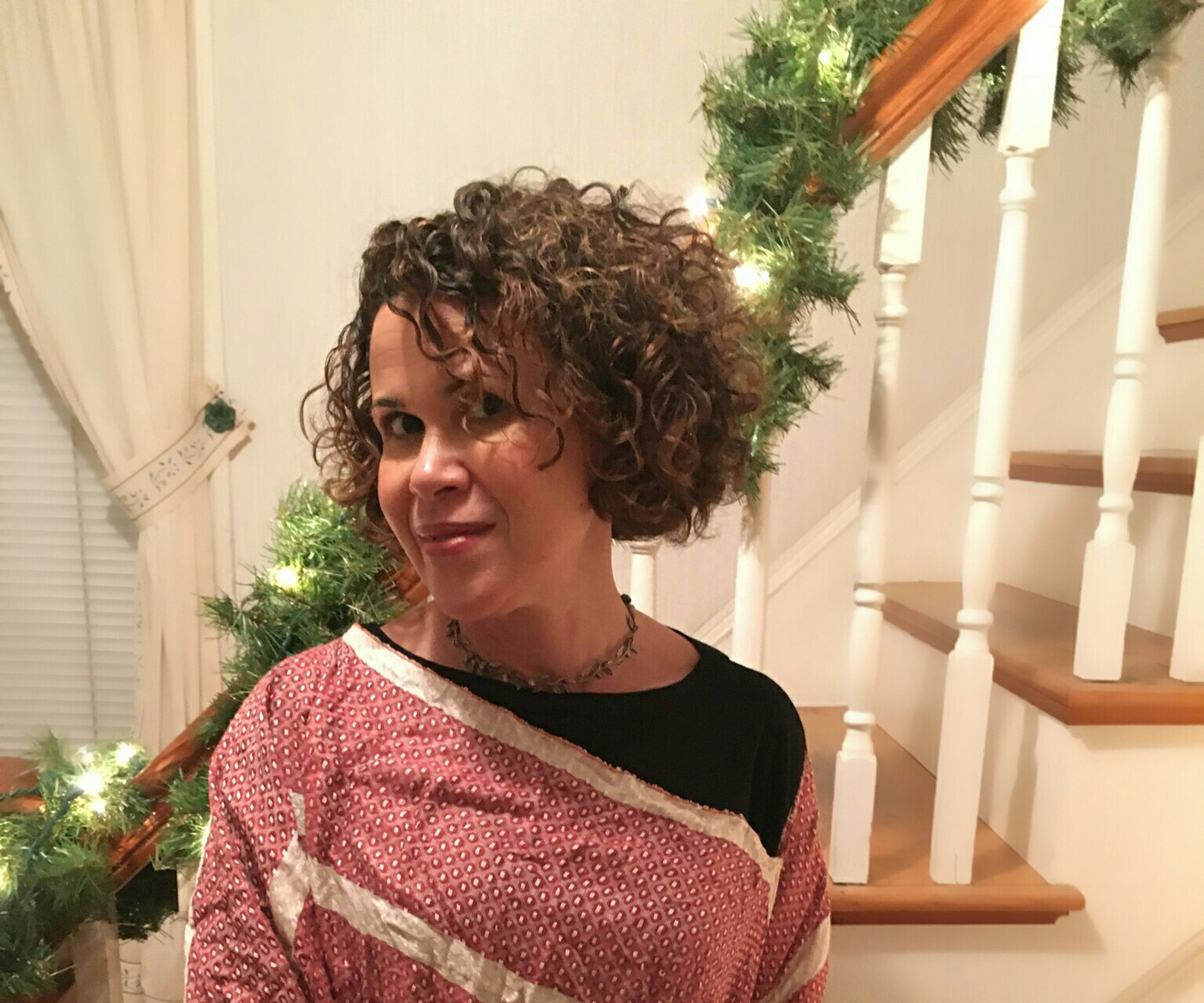 1. How would you describe your social work practice?
1. How would you describe your social work practice?
Trauma-Informed! It’s at the core of everything I do and has been ever since I was exposed to Roger Fallot’s work 15 years ago. It’s not just about social work either. Everyone can and should be trauma-informed. It’s an intentional practice based on trust, collaboration, cultural awareness, choice and safety. It’s how I choose to be when I’m with another person, be they someone seeking my services, a student, a colleague, a friend, my family, a stranger. I’m aware that we each have a story and that the story has shaped who we are, for better or worse. The trauma-informed motto is, “It’s not what’s wrong with you but what happened.” I’m always looking for the story. It’s the undergrad English Lit major in me!
2. What is your favorite course to teach at UNE?
I have so far taught Practice, APA and Field. I have enjoyed all three and each has been a favorite in different ways. I am looking forward to teaching Advanced Trauma next semester and Spiritual Dimensions in SW this winter session because of the themes of trauma, healing and meaning making. I suspect every course I teach at UNE will become my favorites. Having engaged and enthusiastic students makes every course enjoyable!
3. What has been the most rewarding project that you’ve been involved in lately?
I am fortunate to be able to continue my work with the Maine Resiliency Building Network. This network has been at the forefront of disseminating information about Adverse Childhood Experiences in collaboration with THRIVE, an organization I founded to specifically educate behavioral health providers, child protective services and the juvenile justice system on how to enhance and create services that are trauma-informed. I recently co-presented at the first ACES summit here in Maine and look forward to bringing this work to UNE with MRBN’s founder Sue Mackey-Andrews.
4. How do you see your current work impacting our society and the future of social work?
Trauma theory is changing how we look at and approach health care.This knowledge provides health care workers a framework that can result in improved outcomes for all. Ultimately we as social workers can assist in the creation of what Dr. Anda (ACES co-investigator) calls “Healing Communities.” I’m honored to be a part of this movement and work with UNE’s Department of Social Work to ensure that all social workers graduating from our program are Trauma-Informed
5. What keeps you energized and passionate about social work education and practice?
The STUDENTS! My career in social work has been varied. I’ve worked in teen shelters, settlement houses, hospitals, traditional mental health agencies...and now UNE! I start my day knowing that colleagues that I respect and admire and students who are eager to learn will surround me. It makes for a trauma-informed teaching experience.
Opportunities & Information for Students
SOCIAL JUSTICE ARTWORK NEEDED!
Do you know of an artist or group whose art has a social justice theme? The art can address such themes as poverty, addiction, environment, gun violence, food security and many others! We need new art for the Hersey fourth floor hallway, and perhaps even the hallway near Parker Pavilion! If you, or an artist or group you know, would like to hang their art for a period of two or three months, please contact Lori Power (207) 221-4493 or lpower@une.edu). Many thanks!
CALL TO ALUMNI: STUDENTS NEED YOUR HELP!
If you have graduated from UNE with your MSW two or more years ago, and are interested in a volunteer opportunity that will enhance your skills as a professional social worker, we need you! Our program is full of amazing students who need Field Instructors for their foundation and advanced field placements. As an alum, you understand the importance of Field Education and the expectations of students in our MSW program. Our field instructors have flexibility in how field instruction is delivered. You may meet with your student by phone, video conference, or face-to-face. If you'd like to provide field instruction to one or more students, please contact Director of Field Education Kelli Fox. Thank you!
STUDENT ORGANIZATION
The UNE School of Social Work Student Organization (SWO) was created as a response to the need for student involvement in the creation and maintenance of policies, procedures and structure of the University of New England School of Social Work.
The purposes of the organization include:
- Promoting communication, collaboration and community among students, faculty and administration in the UNE School of Social Work.
- Securing and advancing student rights and responsibilities for their education.
- Organizing and uniting the student body in such a manner as to achieve our collective goals and to provide the special needs of individual groups within the student body.
- Enriching our educational experience by providing and allowing for the growth and development of individual skills and interests.
- Participating actively in matters of concern and social justice.
Every student in the SSW is considered a member of this organization. No dues or applications are required. All students are welcome and encouraged to become active members! Whether you join us weekly or just once in the year, we look forward to getting to know you!
Please check out our website for more great information!
Starting January 27th, meeting times for the SWO will be at Wednesdays at 4:30 in Parker Pavilion on the Portland Campus.
Linda M. Piper
MSW Class of 2016
University of New England
UNE MSW HONOR SOCIETY: SIGMA LAMBDA
Interested in Joining the UNE MSW Honor Society Sigma Lambda? We would love to have you as part of our organization! In order to join you need to have a 3.5 GPA and need to have completed one term of classes. You must send an email from your UNE account to Lisa Boris and send your transcripts to Dawn Blake. There is a $30 fee that covers the cost of the certificate and pin and must be paid by cashier’s check or money order only. Once the email, transcripts and money are received, members are added to the UNE MSW Honor Society page quarterly. Please feel free to post any questions on the "Interested in Joining the Honor Society" Facebook page and we will address them. Honor Society officers are: President Lisa Boris, Vice President Carly Turner, Secretary Dawn Blake and Treasurer Amy Tracy.
STUDENT TOWN HALL MEETINGS INVITATION
Shelley Cohen Konrad, Interim Director of the School of Social Work, is hosting Student Town Halls once a month on the following dates, times and locations. This time is devoted to discussion of a variety of topics. Do you have an issue, a concern or an accomplishment to share? If so, please come meet your classmates, bring an issue or come to listen.
- September 9, 2015 4-5 p.m. in Cahner’s Lounge
- October 21, 2015 4-5 p.m. in Alexander Hall Wing Lounge
- November 11, 2014 4:30-5:30 p.m. in Alexander Hall Wing Lounge
- December 9, 2015 4-5 p.m. in Cahner’s Lounge
Light refreshments will be served.
CAREER/JOB SERVICES FOR STUDENTS AND ALUMNI — A SPECIAL TIP FROM VICKI WALKER
Jobs, careers, work...Whatever you call it, you can find the resources at this UNE webpage for career services:
It's a great resource for part-time work while in school and also has resources for professional employment after graduation.
There is literally something for everyone at this site. Take a look at the numerous Resources this site provides. There are all kinds of job listings, from part time jobs, government jobs and hospital jobs to regional and international jobs opportunities. Students can take advantage of all sorts of help finding a job. Whether it’s updating your resume to learning how to network, you will find it here. Faculty can find out how the Career Center can collaborate on classroom presentations as well as recruit employers for job fairs.
Speaking of Career Fairs, the Career Center will be hosting a Health Professions Career Fair this February 10, 2016 from 11 a.m.–3 p.m. in the Finley Rec Center. Have the Career Center help you brush up on your resume and make plenty of copies to hand out! Lunch will be served.
Also, the School of Social Work receives Social Work job opportunities every week. We have a three ring binder in the office listing all the jobs we receive weekly. These jobs are also forwarded to Jeff Nevers in the Career Center.
Upcoming Events
social work student organization events coming up:
- Welcome Back to School Luncheon in Blewett 27 (Portland Campus) on Wednesday, February 3 from 11:30 a.m.-1:30 p.m. for students.
- Wednesday, March 9 - Regular meeting followed by "Movie and Munchies" in Blewett 6 (Portland Campus) from 4:30 to 8 p.m.
